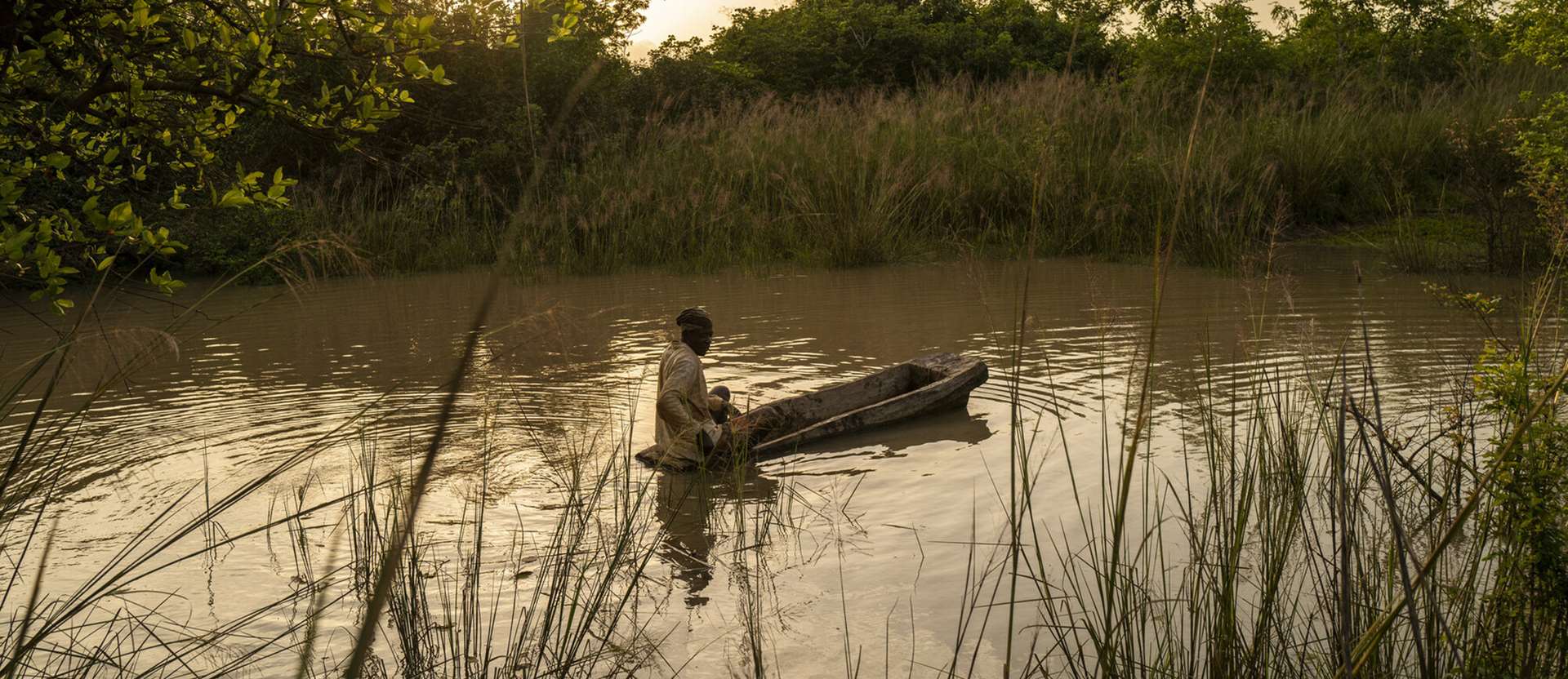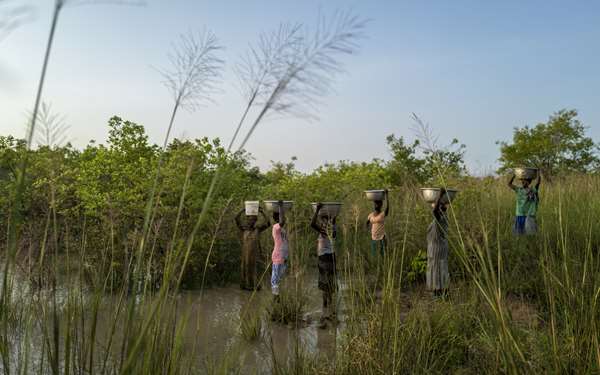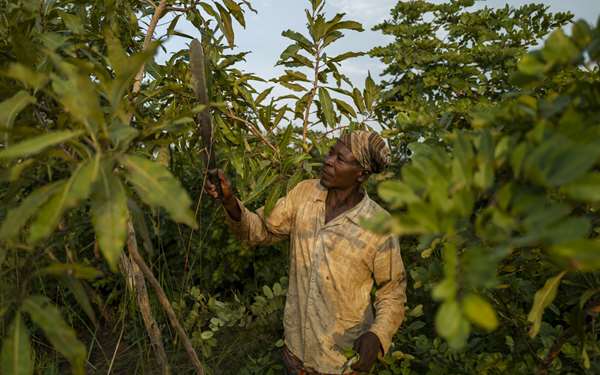
Restoring the Daka River - Phase Two
Continuing our partnership with Ecosia to grow trees and restore the Daka river.Why is this project needed?
The project seeks to further restore and protect communities on the Daka river catchment area in the Mion, Yendi and Gusheigu Districts.
For many people in northern Ghana, the Daka river is a vital source of water for drinking, washing, cooking, and farming. But a rapid loss of trees and soil fertility, and the effects of the climate crisis, mean that the water level can easily run low, and the river dries out for months on end.
For local people, this has made growing enough food difficult. As a result, many people are living in poverty. But trees offer a solution.


Our aims
Working with local people, we're continuing to grow millions of trees to provide food and incomes and restore the river and land.
The trees we plant mean stability and protection for the people living along the river. The roots stabilise the soil and prevent nutritious topsoil from being washed away in floods. They also help improve the land's fertility so that other crops can grow and provide communities with food.
Alongside more planting and Natural Resource Management training, we are creating and strengthening 50 nutrition gardens, encouraging the growth of tree-produce businesses from them, as well as developing 50 Village Loans and Savings Associations (VSLAs) and creating 15 grass briquette groups. These briquettes can be used as an alternative to firewood or charcoal fuels, an innovative way to tackle deforestation.

What is Natural Resource Management Training?
During the next phase of this project, we're continuing to support families and communities with the tools and training needed to help them restore and protect their land - this is part of our Natural Resource Management Approach.
Some techniques communities are being trained in include bushfire management, tree grafting and assisted natural regeneration (ANR) — a method used to restore ecosystems. Using this technique, we will regenerate 1,749,000 trees. As part of this approach, we'll also be identifying shea saplings to protect and graft, and providing boreholes to 10 communities to assist with water use and conservation.








